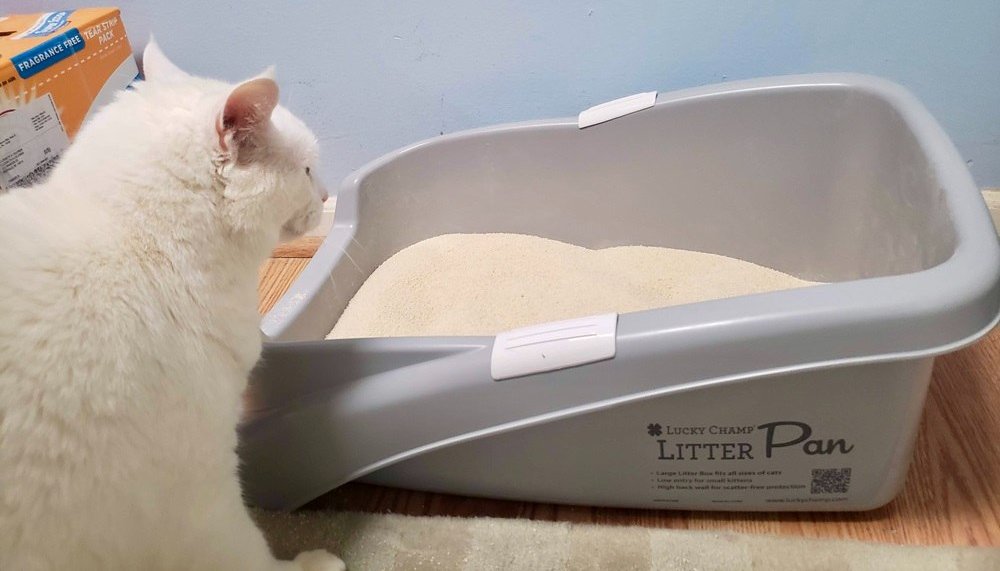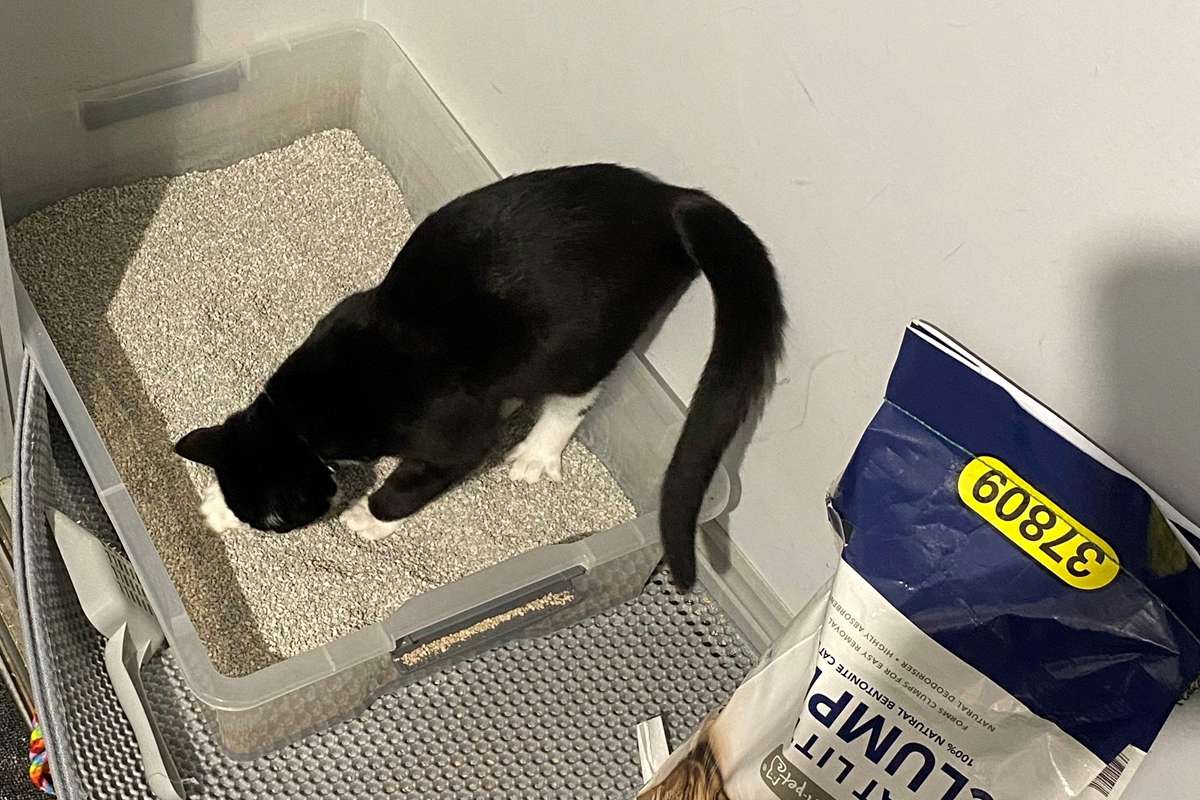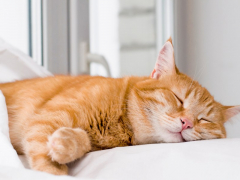
Liz Coleman / Cats.com
Cats display some strange behaviors, don’t they? If you’re a cat owner, you’ve probably watched your cat during one of their funny five minutes.
In that case, you might notice them stalking objects, running from perceived threats that don’t exist, or flinging one of their toys around like it’s got a life of its own. But does your cat ever bury their toys in their litter box? Well, some cats do! Let’s find out why.
Why Do Cats Bury Objects?
There are a lot of things that cats might bury, from poop and urine to toys and food. So, what’s the purpose of burying these things?
1. To Keep Things Safe
When we have something special, valuable, or sentimental, we keep it somewhere safe. This might be in a literal safe or just a safe place where it won’t get lost, damaged, or stolen. Well, cats feel just the same about their precious items and keeping them safe.
By burying their hunting prizes, toys, and cat food, they can ensure they don’t get stolen or have to be shared with anyone else.
2. To Hide Their Scent

Cats instinctively bury objects to mask their scent, ensuring their territory remains subtly marked with their pheromones. Kirsten McCarthy / Cats.com
Cats also bury things to hide their scent because most of their environment and possessions will be marked with their pheromones. Of course, this is another way of keeping things safe. However, it’s also one of the ways that a cat protects themselves.
Cats hide their scent to prevent larger predators from finding or tracking them. This explains why cats bury their poop, urine, and important items like toys, food, and hunting skills.
3. They’re Practicing Hunting Behavior
Do you ever notice your cat spending ages burying a toy, only to pounce and dig it up later? Well, this could mean they’re practicing their hunting behavior. When they’re hunting, cats have to find their prey when they’re quick, small, or hard to spot.
Burying their toys and then practicing catching them helps your cat hone their hunting skills and refine their senses.
So, Why Their Litter Box?

The toilet might be the last place a human would hide something valuable, but cats see things differently. Melina Grin / Cats.com
OK, so now you understand some of the reasons why cats bury objects. Whether it’s because they’re special to them, they’re practicing hunting, or they’re covering their tracks. But, of all places, why choose the cat’s litter box?
Surely their litter box is pretty unhygienic, even bordering on disgusting. Certainly not a place for storing things that are important to them. As with many cat behaviors, though, with a bit of investigation, this act does make sense.
It’s Their Space
Cats trust familiar places that smell like them, and, with all the urine and feces, no place smells more like their scent than their litter box. If they bury things in their litter box, there can be no confusion about who they belong to! Therefore, they can rest assured that no one will pinch their favorite toy or special snack they’re saving for later.
It’s Safe
Cats associate their scent with feeling safe, and if they don’t feel safe in their litter box, they won’t use it as their toilet. This is why some cats will poop or pass urine outside their tray when feeling stressed or unwell. So, if the safest part of the house is their litter box, it’s actually an obvious choice for storing special items.
What if Your Cat’s Behavior Suddenly Changed?

Even if you have only one cat, it’s important to provide enough litter boxes so that your cat (or cats!) have options to choose from and a relatively clean place to go. Kirsten McCarthy / Cats.com
Although normal cat behavior can seem odd, it shouldn’t change suddenly. So, if your cat has never bothered to bury things in their litter tray and suddenly starts, it could be a sign that something’s wrong. Keep an eye out for other symptoms like peeing or pooping outside the box, scratching at furniture where they didn’t before, and other general signs of being unwell.
If you’re concerned that your cat isn’t behaving like they usually do or seems sick, speak to your veterinarian for advice. It could be as simple as they don’t like the type of litter you’re using or they want a new scratching post, but they could also have medical issues.
Conclusion
Cats are strange but lovable creatures. If your feline friend buries toys in their litter box, it might seem really odd to you. But, if you’re a pet owner, reading the information above might shed some light on their thought process and why, for cats, it makes sense!
However, suppose your cat’s behavior ever changes suddenly. In that case, you should speak to your veterinarian in case there’s something wrong, like feline stress or an underlying medical condition.
Frequently Asked Questions
Why is my cat burying his toys?
Cats bury lots of things, from poop to food. If your cat is burying their toys, they’re likely keeping them safe and ensuring that no other cats get hold of them.
Their toys are also likely to smell of their scent, so they might bury them so that they don't attract perceived predators, especially if they're stressed. If your cat starts burying their toys out of the blue, it could be a sign that they are unwell or stressed, so make sure you seek a veterinarian's advice.
Do cats know when you clean their litter box?
Cats have a powerful sense of smell, so they’re well aware of when you clean their litter box. In fact, if you use cleaning products that are too strong smelling, they might go on strike and stop using the litter box in favor of another location around the house.
Therefore, keeping a clean litter box is important, but use mild or scent-free chemicals and ensure they're pet friendly.
Why does my cat hide her toys?
Cats don't have a lot of resources that are important to them. The main ones are food bowls, water dishes, litter boxes, toys, and safe shelter. Cats will protect these resources because they feel they are essential to their survival. By hiding them, they ensure that other cats don't claim them while also ensuring larger predators don't track down their scent.







